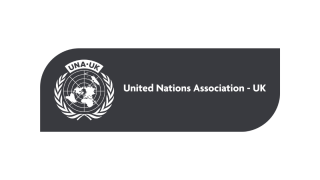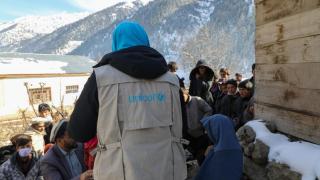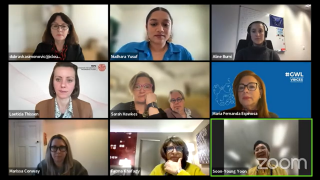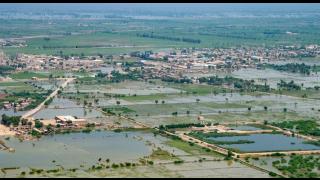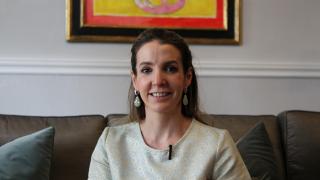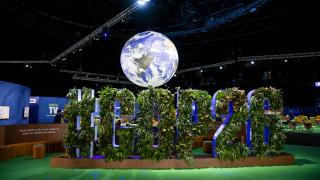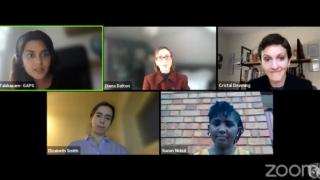
This article was first published by GAPS on 17 November 2021. You can read the original here.
On Wednesday 10th November, Gender Action for Peace and Security (GAPS) and United Nations Association – United Kingdom (UNAUK) hosted an event titled “Climate Change and Women, Peace and Security: Defending the Future” chaired by Eva Tabbasam at GAPS.
This event brought together a panel of experts to discuss the gender-climate-security nexus, and how the international community should consider the Women, Peace and Security agenda as a framework to address climate change risks posed to women and girls. This event was also an opportunity to launch a joint policy brief titled Defending the Future: Gender, Conflict and Environmental Peace.
The event heard from: Suzan Nkinzi from the Women’s International Peace Centre (WIPC); Diana Dalton from the Foreign, Commonwealth and Development Office (FCDO); Elizabeth Smith from the Stockholm International Peace Research Institute (SPIRI); and Cristal Downing from the United Nations University Centre for Policy Research (UNUCPR).
Suzan Nkinzi began by introducing the ‘Defending the Future: Gender, Conflict and Environmental Peace’ research paper which led to the development of a policy brief of the same name. Suzan outlined the different methods in which the research was collected, the key themes that the research paper focuses on including environmental insecurity and displacement, and the key recommendations that came out of participants responses to the study.
Diana Dalton followed and spoke about the UK Government’s three-pronged approach to gender at COP26 including: increasing women and girls’ agency through education; building resilience and adaptation to climate impacts; and delivering climate finance that focuses on the economic empowerment of women and girls. Diana spoke about the various commitments that the UK Government has made to women and girls in climate action and outlined some principal issues that must be addressed to achieve this.
We also heard from Elizabeth Smith who discussed in-depth the links between gender, climate, and environmental security and spoke about the importance of women’s participation in the comprehensive development of National Action Plans (NAPs). Elizabeth used examples from Mali and Somalia to explain how the relationship between climate change and conflict has a compounding impact on women and girls, especially those who have intersecting identities/risk factors. Elizabeth spoke in depth about how NAPs are a blueprint for a state’s commitment to the women, peace, and security agenda, and how they must include tangible actions on addressing the impact of climate change on women and girls. Elizabeth points to different examples of NAPs where this is done, including Finland, Ireland, and the USA.
Lastly, we heard from Cristal Downing who spoke about her research that was conducted in Colombia about the impact of climate change and armed groups. Cristal presented the findings of the research focusing on three main data points: impact of changes in rainfall and temperature; impact of deforestation, mining and/or drilling; and links between armed group recruitment and climactic shifts. Cristal went on to discuss the policy implications of the research conducted in Colombia, including how an intersectional analysis is key to understanding the interactions between climate, gender, and security. Cristal also spoke about the broader need for the climate change agenda to be a cross cutting issue across the UN’s work.
In the Q&A session, speakers were asked various questions about the link between climate change, gender and security, including on whether gender at COP26 has been more about rhetoric rather than real tangible actions. The speakers reflected on the reality that gender has mostly been siloed within these conversations, and that a more inclusive and intersectional approach needs to be taken to close the gap in conversations, but that rhetoric might be a positive way to get the conversations started. This event overall provided an excellent opportunity to learn and reflect on how climate change and the women, peace and security agenda are linked.
You can watch the recording of this event here.
Photo: (Clockwise from top left) Eva Tabbasam, Diana Dalton, Cristal Downing, Elizabeth Smith, and Suzan Nkinzi speak during the event.

